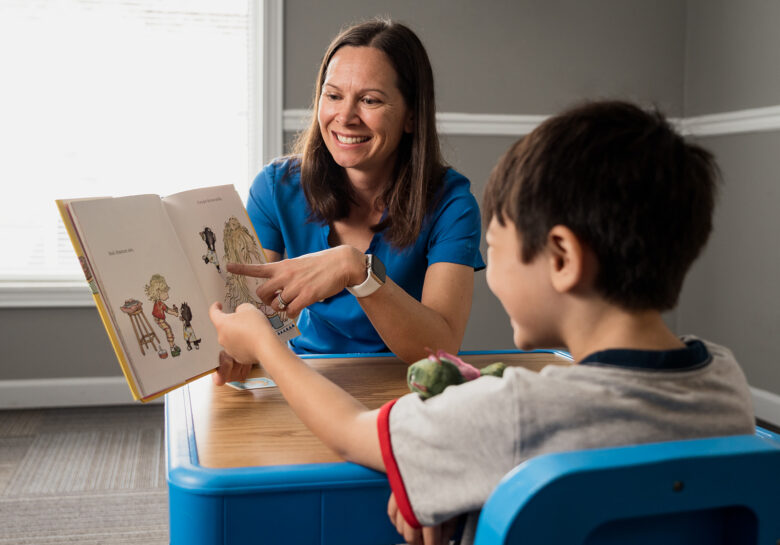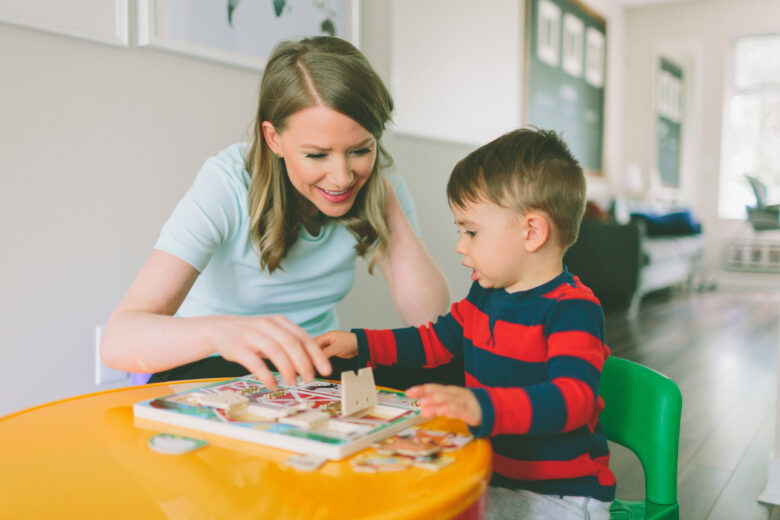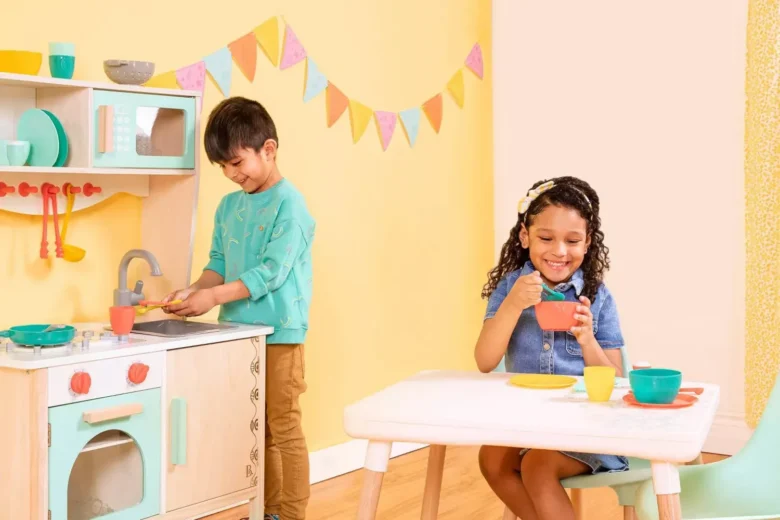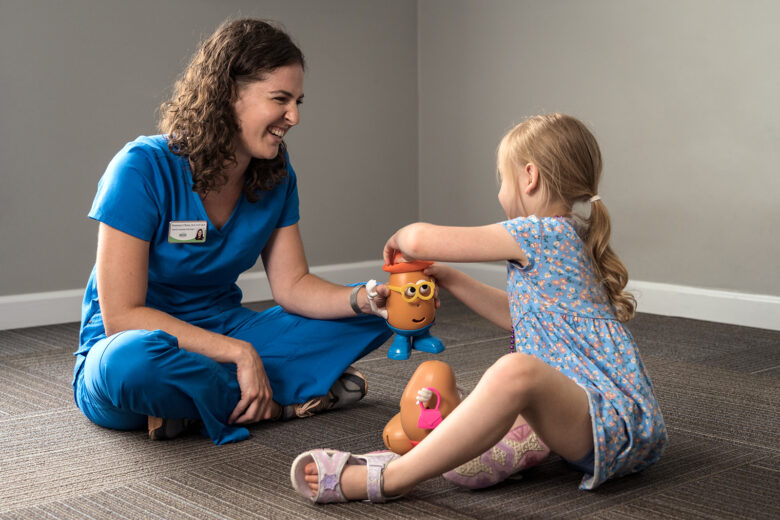Speech development is an essential aspect of a child’s growth and communication. In addition to being a key element in a child’s social and emotional development, it plays a crucial role in their academic success. Playing with toys can be a fun and effective way to support learning and language development. While traditional speech therapy methods can be effective, incorporating toys into the therapy process can make it more engaging and enjoyable for children. This article will provide insights into some of the most effective speech therapy toys that can be used to support language development and improve communication skills in children.

Blocks
Building blocks are a classic toy that can help promote speech and language development. Children can learn new words and concepts by building towers and structures with blocks. They can also learn about colours, shapes, and sizes. Encourage them to describe what they are building and use new words as they play. Playing with building blocks can also help children develop their problem-solving skills and spatial awareness. They can learn about cause and effect by manipulating the blocks and developing their fine motor skills. Building blocks can also be used to teach social skills, such as turn-taking and cooperation, as children work together to build structures. By encouraging children to describe their creations, parents and caregivers can help to expand their vocabulary and encourage language development in a fun and interactive way.
Dolls
Dolls and action figures can be excellent speech therapy toys. They provide opportunities for children to practice using different voices and to engage in imaginative play. You can encourage children to create a dialogue between their dolls or to role-play different scenarios. Playing with dolls and action figures can also help children develop empathy and social skills. By role-playing different scenarios, they can learn about different perspectives and emotions. This can help them better understand their feelings and those of others and communicate more effectively. Encouraging children to use different voices and create dialogue can also help to develop their expressive language skills and promote their creativity. Dolls and action figures can be versatile and engaging tools, providing endless possibilities for play and learning.

Board Games
Board games are a fun way to promote language development and social skills. Games that involve storytelling, like “Once Upon a Time” or “Tell Tale,” can help children practice creating narratives and using new words. Board games that involve turn-taking and communication, like “Battleship” or “Scrabble,” can also be useful for practising language skills. Playing board games can also help children develop their critical thinking and problem-solving skills. Games that involve strategy, like “Chess” or “Risk,” can encourage children to think ahead and make decisions based on logic and reasoning. Board games involving social interaction and negotiation, like “Monopoly” or “Settlers of Catan,” can also teach children how to communicate effectively and work together towards a common goal. By engaging in board games, children can learn how to express themselves in a variety of situations, develop their vocabulary, and improve their comprehension skills. Board games can be a fun and engaging way to support lingual skills and promote social and emotional growth.
Puppets
Puppets can be used to encourage children to use their imagination and practice their speech and language skills. Children can create their own stories with the puppets, and you can encourage them to use new words and practice speaking clearly. You can also use puppets to model correct pronunciation or act out scenarios the child may be struggling with. Playing with puppets can also be helpful for children who may be shy or have difficulty expressing themselves. Puppets can provide a safe and non-threatening way for children to practice communication skills and build confidence. They can also be used to teach important social and emotional skills, such as respecting differences. Puppets can be a versatile tool in speech development and can be used to target a range of goals, from improving articulation to developing conversation skills. By incorporating puppets into speech therapy sessions, children can have fun while learning and practising important communication skills.

Play Kitchen Sets
Play kitchen sets can allow children to practice their language skills through role-play. They can use new words as they pretend to cook and serve food. You can also encourage them to describe the food they are making or to ask questions about what their playmates would like to eat. Playing with play kitchen sets can also help children develop their fine motor skills and their understanding of cause and effect. By manipulating the different utensils and ingredients, they can learn about how things work and how to use them. Play kitchen sets can also provide opportunities for children to practice social skills, such as sharing and taking turns, as they work together to create meals. By encouraging children to describe the food they are making and to ask questions about their playmates’ preferences, parents and caregivers can help to expand their vocabulary and promote their language development in a fun and interactive way.
Storytelling game
This game consists of nine dice with a different image on each face. Players roll the dice and use the images to create a story. This game encourages creativity, imagination, and storytelling, which are important for speech development. Children can practice using new vocabulary and expanding sentence structures while playing this game. It can also be fun and engaging to practise social communication skills, such as taking turns, listening to others, and following social rules. It is a versatile and effective tool for speech therapy sessions.
Furthermore, this game can be adjusted to target specific speech and language goals. For example, the therapist or caregiver can ask the child to include certain types of words in their story, such as adjectives or prepositions, to practice using these words in context. The game can also be adapted for different ages and skill levels, making it suitable for a wide range of children. The simplicity of the game makes it easy to learn and play, and its portable size makes it a convenient tool to use in various settings, such as in the classroom, at home, or during therapy sessions.

Conclusion
In conclusion, many types of toys can support children’s speech therapy and language development. By incorporating these toys into playtime, parents and caregivers can provide opportunities for children to practice their speech and language skills in a fun and engaging way. So, the next time you’re looking for a toy for a child, consider one that can help promote speech development.

